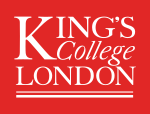email: support@mgmstudyabroad.com

Study In Europe
Europe is a hub of academic excellence, offering a diverse and high-quality education system that attracts students from around the world. With over 4,000 higher education institutions, Europe provides a broad range of programs taught in English and other European languages. Universities in Europe are known for their innovative teaching methods, cutting-edge research, and strong emphasis on practical skills. The European Higher Education Area (EHEA) ensures that degrees and credits are comparable across countries, facilitating student mobility and academic recognition. The Bologna Process has further harmonized education systems, promoting transparency and quality assurance. Europe’s rich cultural heritage, affordable education, and strong support systems make it an ideal destination for Indian students seeking a global education.
Why Study in Europe ?
Diverse Range of Programs: Europe offers a wide variety of programs in numerous fields of study, providing options to suit every academic interest and career goal.
World-Class Education: European universities are renowned for their high academic standards, innovative research, and distinguished faculty, with institutions like Oxford, Cambridge, and ETH Zurich leading the way.
Cultural Richness and Diversity: Studying in Europe allows students to experience rich cultural diversity and history, enhancing their global perspective and intercultural skills.
Affordable Tuition Fees: Many European countries offer lower tuition fees compared to the USA and UK, with some countries even offering free or very low-cost education for international students.
Scholarship Opportunities: Numerous scholarships and financial aid options are available for international students, including Erasmus+, DAAD, and national government scholarships.
Language Learning: Studying in Europe provides the opportunity to learn or improve foreign language skills, which is highly valued in the global job market.
Work Opportunities: Students can work part-time during their studies and full-time during holidays, providing valuable work experience and helping to support themselves financially.
Post-Study Work Options: Many European countries offer post-study work visas, allowing graduates to gain international work experience and potentially transition to permanent residency.
Travel Opportunities: Europe’s well-connected transport systems make it easy to travel and explore different countries and cultures within the continent.
Quality of Life: Europe offers a high standard of living, with excellent healthcare, safety, and vibrant student communities.
Engineering and Technology: Programs in mechanical, electrical, civil, and computer engineering are highly sought after, with universities like ETH Zurich and TU Delft leading in innovation and research.
Business and Management: European business schools, such as INSEAD, London Business School, and IE Business School, offer top-ranked MBA programs and specializations in finance, marketing, and entrepreneurship.
Health Sciences: Medicine, pharmacy, nursing, and public health programs are prestigious, providing comprehensive training and clinical experience. Universities like Karolinska Institute and Heidelberg University are renowned in these fields.
Natural Sciences: Courses in biology, chemistry, environmental science, and physics are popular, with a strong emphasis on research and practical applications.
Social Sciences and Humanities: Programs in psychology, sociology, political science, international relations, and arts and humanities are well-regarded, offering a broad and critical understanding of societal issues.
Part-Time Work: International students can work part-time during their studies (usually up to 20 hours per week) and full-time during holidays, providing practical experience and financial support.
Internships and Co-op Programs: European universities often have strong ties with industries, offering internships and co-op programs that provide hands-on experience and professional networking opportunities.
Post-Graduation Work Visa: Many European countries offer post-study work visas, allowing graduates to stay and work for a period after completing their studies, which can lead to long-term employment and residency opportunities.
Permanent Residency Pathways: Graduates who secure employment can often transition to permanent residency, making Europe an attractive option for long-term career prospects.
Public and Private Universities: Europe has a mix of public and private universities, with public institutions often offering lower tuition fees. Notable public universities include the University of Amsterdam and University of Vienna, while private institutions like Bocconi University also have strong reputations.
Technical Universities and Institutes: Focus on engineering, technology, and applied sciences. Examples include ETH Zurich, Technical University of Munich, and Delft University of Technology.
Universities of Applied Sciences: Offer practical-oriented programs in fields such as business, engineering, and social sciences. Examples include FH Aachen and HAN University of Applied Sciences.
Grading System: The European Credit Transfer and Accumulation System (ECTS) is commonly used, making it easy to compare academic achievements across countries. Grading systems may vary, but ECTS ensures compatibility and recognition.
Research and Shortlist Programs:
- Identify universities and programs that match your academic and career goals.
- Check program requirements and deadlines on university websites.
Prepare for Standardized Tests:
- Some programs may require GRE/GMAT.
- Ensure your English proficiency test scores (IELTS/TOEFL) meet program requirements.
Gather Documents:
- Academic transcripts and degree certificates.
- Letters of recommendation (usually 2-3).
- Statement of Purpose (SOP) or Personal Statement.
- Updated Resume or CV.
- Any additional documents specified by the university.
Submit Online Applications:
- Fill out application forms on university websites or through centralized systems like UCAS (for the UK) or uni-assist (for Germany).
- Upload necessary documents.
- Pay application fees.
Apply for Scholarships and Financial Aid:
- Research and apply for available scholarships such as Erasmus+, national government scholarships, and university-specific grants.
Await Admission Decisions:
- Monitor your email and application portals for updates.
- Respond to any additional requests from universities.
Secure Funding:
- Finalize funding sources (scholarships, loans, personal savings).
Apply for a Student Visa:
- Receive an acceptance letter from the university.
- Apply for a student visa at the relevant embassy or consulate, providing required documents including proof of funds and health insurance.
Prepare for Departure:
- Arrange accommodation and travel.
- Attend pre-departure orientations if available.
- Prepare necessary documents for travel.
Arrive and Enroll:
- Arrive in Europe before the program start date.
- Complete the university’s enrollment and orientation process.
Top Universities in Europe









